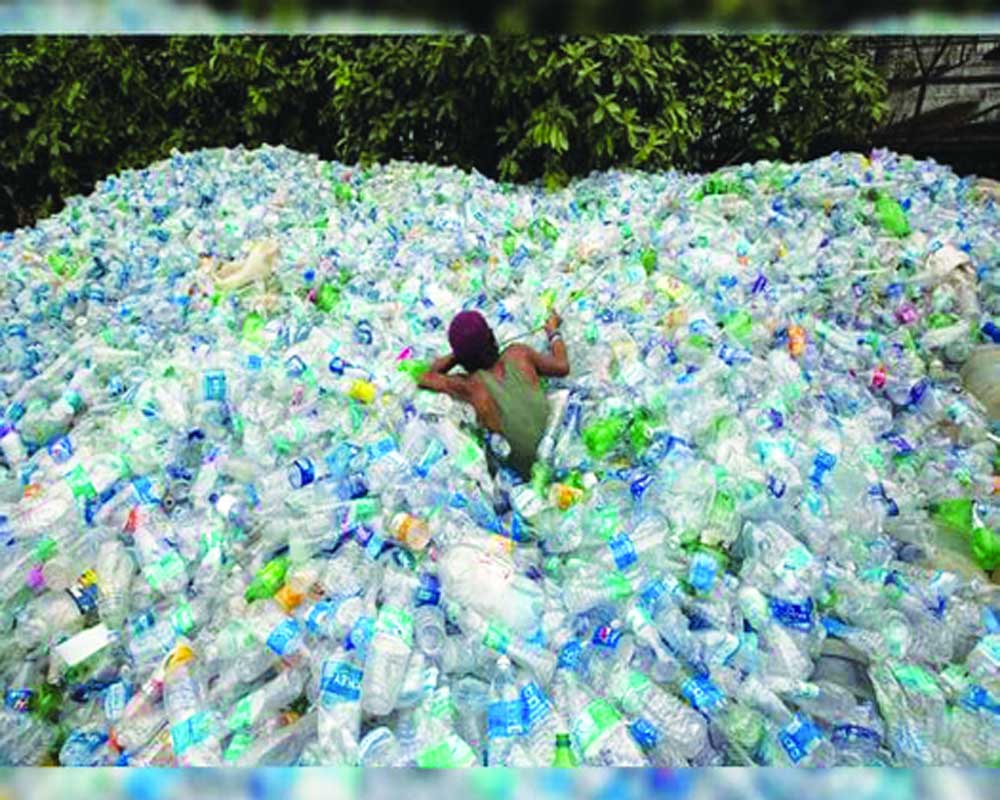The Government's U-turn on the ban of single-use plastic may be temporary but we should all ease up on its use
There is little doubt that India is in the middle of an industrial slump with statistics showing that both growth and jobs are declining. The fact that the Government had to reverse its decision to ban single-use plastics because it did not want to cause more industrial disruption is founded on pragmatism. However, this should not stop it or the society’s efforts to use less plastic. In fact, a gradual phasing out of its production, re-introduction of alternatives and a sectoral approach could be the executive’s view, considering its widespread use in pharmaceuticals and hospitals for example, but we should all work towards eliminating single-use plastics from our lives. We do not have the luxury to look at excuses provided by a Government decision. It is impossible to imagine modern society without plastics. Indeed, from toys to cars and even the carbon-fibre reinforcement that forms the fuselage of modern aircraft, plastics are everywhere. Everywhere means everywhere, as trash piles have been found at the bottom of the deepest trenches of the Pacific Ocean and the highs of Himalayan peaks. And single-use plastics like glasses, straws, plates, bottles, cutlery and bags are entirely within the domain of individual behaviour and lifestyle change. Unfortunately, while India generates about 9.4 million tonnes of plastic waste a year, it recycles only about 60 per cent of it. Studies by The Energy Resources Institute (TERI) on landfills found that 10.96 per cent of the waste was only plastic and of these, the non-recyclable kind accounted for 9.6 per cent.
We should all start adapting and be mindful about daily life, use bags made out of jute or even reuse our plastic bags more than once. If we can avoid using a straw or buying a plastic bottle of water, we would have done our best to clear the heap. Paper cups and metal cutlery will help as well. One shouldn’t blame the industry for not providing options because until we ask for alternative products and create a demand swell, we will not get them. That said, we should also know if the replacement products turn out to be as damaging or possibly worse than the plastics they replaced. What we think are “woven paper” bags are actually made from long plastic polymers, wood fibre products, which mostly have plastic elements in them as well. And because both are not pure plastics, they actually do not bio-degrade like some modern variants. So our attempts to be altruistic to the environment should not end up damaging it instead. It is also important that the plastics industry continues its work towards developing less environmentally damaging products. On this front, the industry has been very proactive and is moving fast. Laws, too, have been framed. The Plastic Waste Management Rules, 2018, call for producing industries to collect a fixed percentage every year. The Plastic Waste Management Rules, 2016, make it crystal clear that it is the duty of all — producers, importers and brand owners — to adopt a give-and-take policy where it is their responsibility to ensure that they collect back as much of the filth as they introduce into the environment. The same Act also bans plastic bags that are less than 50 microns in thickness. The crux of the matter is that all such laws have been ineffective due to the sheer lack of enforcement. So the big change has to come from us as enforcers if we want to ensure that we leave the next generation a viable ecosystem. To channel Greta Thunberg, “How dare we not change?” We can’t imagine a life without plastic and it is unlikely that it will disappear from our lives. But we must reduce our dependence on it whether the Government orders it or not.


























